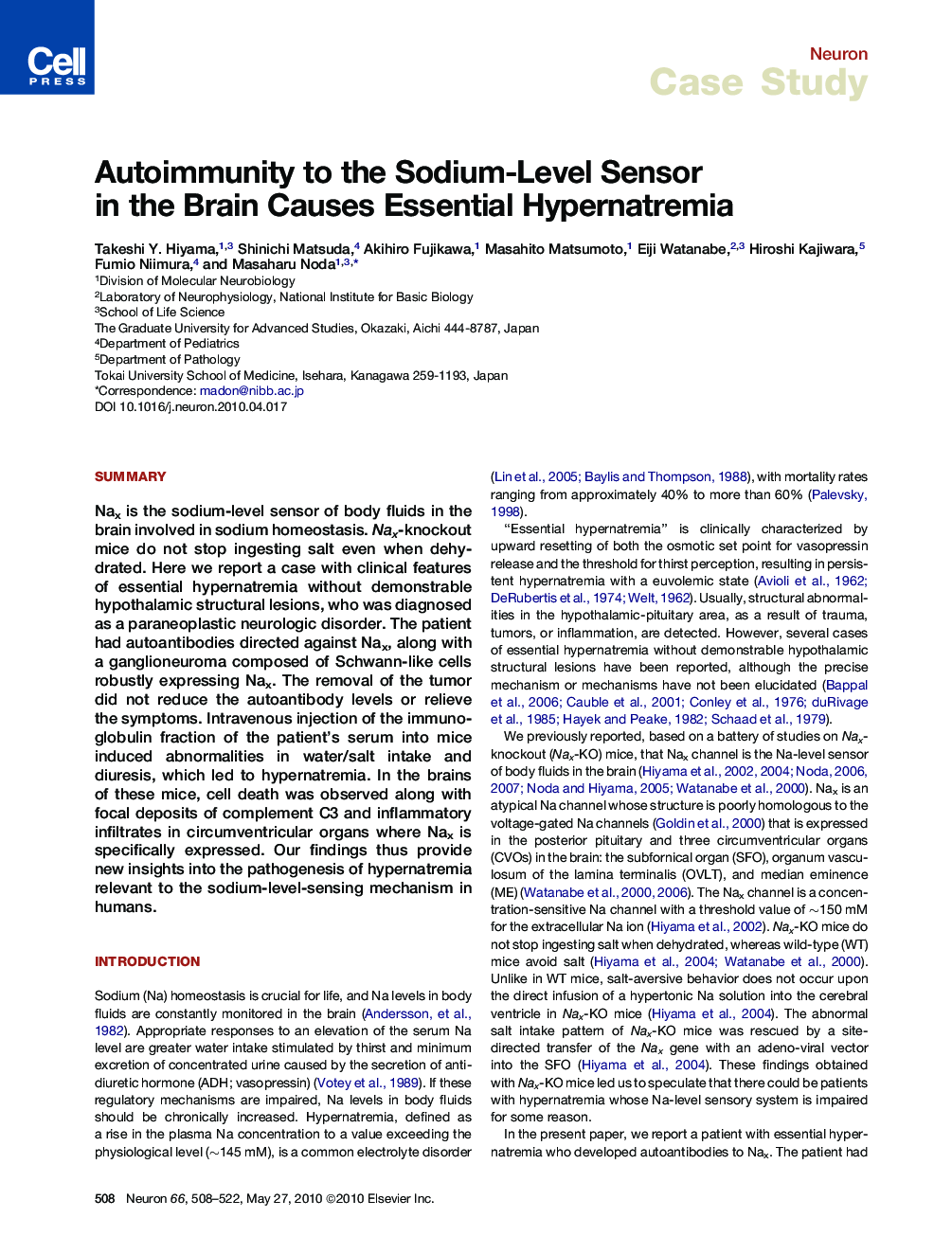| کد مقاله | کد نشریه | سال انتشار | مقاله انگلیسی | نسخه تمام متن |
|---|---|---|---|---|
| 4321821 | 1291655 | 2010 | 15 صفحه PDF | دانلود رایگان |

SummaryNax is the sodium-level sensor of body fluids in the brain involved in sodium homeostasis. Nax-knockout mice do not stop ingesting salt even when dehydrated. Here we report a case with clinical features of essential hypernatremia without demonstrable hypothalamic structural lesions, who was diagnosed as a paraneoplastic neurologic disorder. The patient had autoantibodies directed against Nax, along with a ganglioneuroma composed of Schwann-like cells robustly expressing Nax. The removal of the tumor did not reduce the autoantibody levels or relieve the symptoms. Intravenous injection of the immunoglobulin fraction of the patient's serum into mice induced abnormalities in water/salt intake and diuresis, which led to hypernatremia. In the brains of these mice, cell death was observed along with focal deposits of complement C3 and inflammatory infiltrates in circumventricular organs where Nax is specifically expressed. Our findings thus provide new insights into the pathogenesis of hypernatremia relevant to the sodium-level-sensing mechanism in humans.
► An essential hypernatremia is diagnosed as a paraneoplastic neurologic disorder
► The patient has autoantibodies to Nax channels, the sodium-level sensor in brain
► Mice injected with the patient's Ig easily develop hypernatremia
► Cell death is observed in the sensory CVOs of the mice, where Nax is expressed
Journal: - Volume 66, Issue 4, 27 May 2010, Pages 508–522